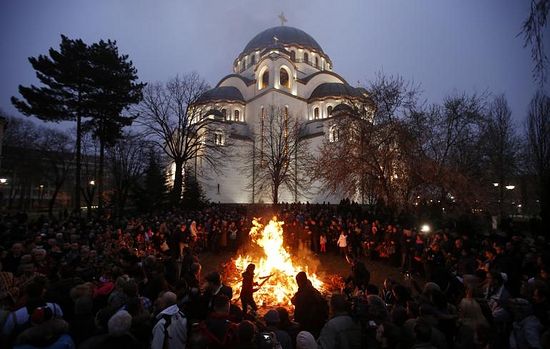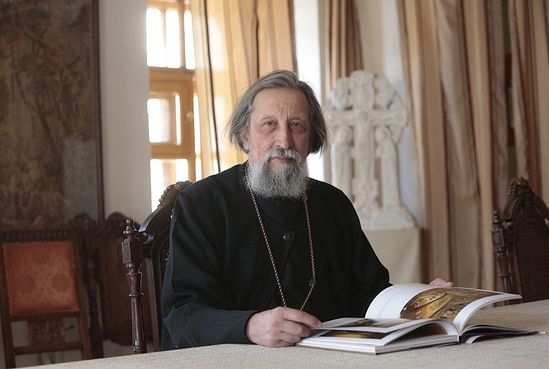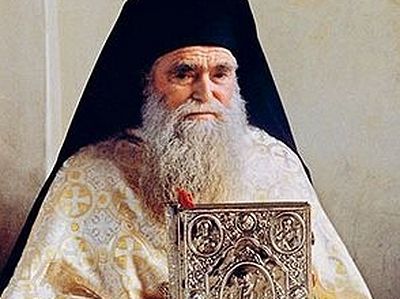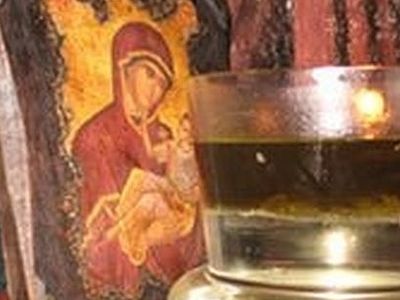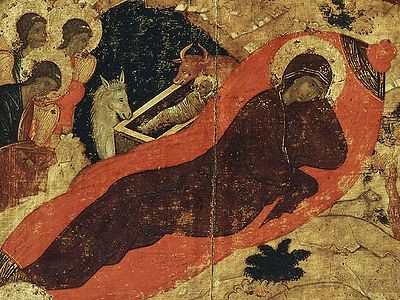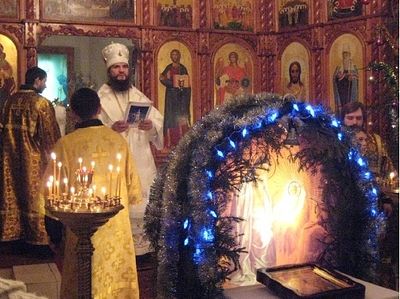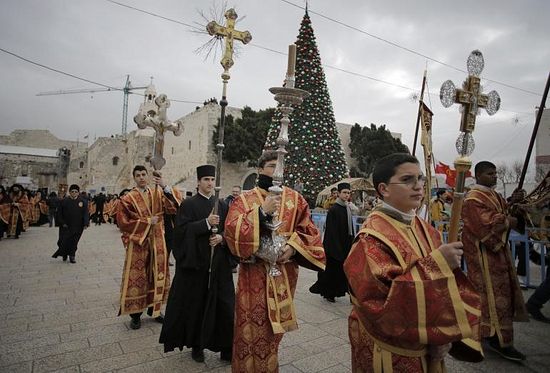 Orthodox Christians are beginning their Christmas celebrations Tuesday. Members of the Greek Orthodox clergy are pictured here outside the Church of the Nativity in the West Bank town of Bethlehem January 6, 2015. REUTERS/Ammar Awad
Orthodox Christians are beginning their Christmas celebrations Tuesday. Members of the Greek Orthodox clergy are pictured here outside the Church of the Nativity in the West Bank town of Bethlehem January 6, 2015. REUTERS/Ammar Awad
Orthodox Christian communities around the world began their Christmas celebrations on Tuesday, with Jan. 6 marking the start of Christmas Eve for much of the Eastern Christian world. From Bethlehem to Moscow to Athens, different sects of Orthodox Christianity have maintained the traditional Christmas date from the old Julian Calendar, resulting in the difference in Christmas dates between Eastern and Western Christian traditions.
Most Orthodox traditions, including the Russian and Greek Orthodox and Ethiopian and Egyptian Coptic churches, celebrate the Christmas holiday on Jan. 6 and 7. These dates are known as “Old Christmas Day” because of its original designation as the day of Jesus’ birth by the first Christian Roman emperor, Constantine in 325 A.D., according to the Jerusalem Post. After Pope Gregory XIII switched the earlier Julian Calendar to the new date system in 1582, which became known as the Gregorian Calendar, the Catholic church moved its Christmas celebrations 13 days ahead to Dec. 25, a shift that was not adopted by much of the Eastern Church, which never recognized the primacy of the pope.
While many Orthodox churches eventually adopted the Gregorian calendar, they kept Jan. 6 as the date of their Christmas Eve celebrations. The Armenian Church in Jerusalem is one notable exception, celebrating their Christmas on Jan. 18 and 19.
Orthodox observances of Christmas vary considerably from Western customs, according to the Christian Post. Though many of the “external trappings” of the holiday, including Christmas trees, wreaths and gifts, might be shared across traditions, the Orthodox Church puts a greater emphasis on “spiritual” side of the holiday season. Fasting and performing charitable deeds are prominent features of the Christmas season for Eastern Christians, which also includes various services of worship.
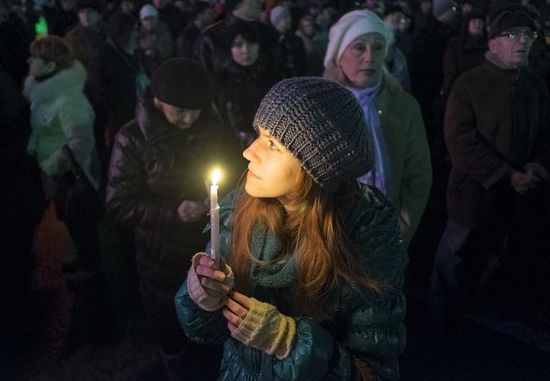 A pro-European integration supporter holds a candle as she celebrates Orthodox Christmas in Independence Square in Kiev, Jan. 6, 2014. Reuters
A pro-European integration supporter holds a candle as she celebrates Orthodox Christmas in Independence Square in Kiev, Jan. 6, 2014. Reuters
Many Orthodox Christians also abstain from meat products during the holidays, instead eating foods like beans, bread, nuts and dried fruit, said the Jerusalem Post. Additionally, the Western tradition of Santa Claus is de-emphasized in the Eastern tradition, which instead reveres the historic incarnation of St. Nicholas, a fourth century saint and Greek Orthodox bishop. Other traditions include setting extra places at the table for the spirits of family members who have passed on and a 12-course Christmas Eve dinner, consisting entirely of vegetarian dishes, according to CBC.
The Church of Nativity in the West Bank town of Bethlehem, which Christian tradition holds as the birthplace of Jesus, plays host annually to Christmas celebrations from a number of denominations. This has in the past sparked tensions as rival clergy compete over the administration of the holy site.
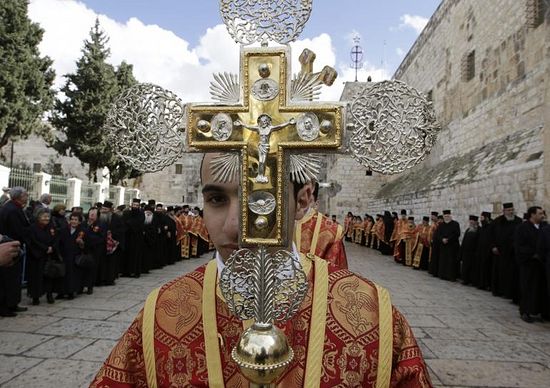 Orthodox clergy take part in the Christmas procession outside the Church of the Nativity in the West Bank town of Bethlehem, Jan. 6, 2011. Reuters
Orthodox clergy take part in the Christmas procession outside the Church of the Nativity in the West Bank town of Bethlehem, Jan. 6, 2011. Reuters
This year’s celebrations have so far gone smoothly. On Tuesday, the Syrian Orthodox archbishop, Greek Orthodox patriarch of Jerusalem, Coptic Orthodox archbishop and Ethiopian Orthodox archbishop all gathered in Manger Square in front of the Church of Nativity to mark the holiday, according to the Palestinian Ma’an News Agency. Crowds braved the cold weather and an expected snowstorm to share in the Christmas Eve festivities around the historic church.
